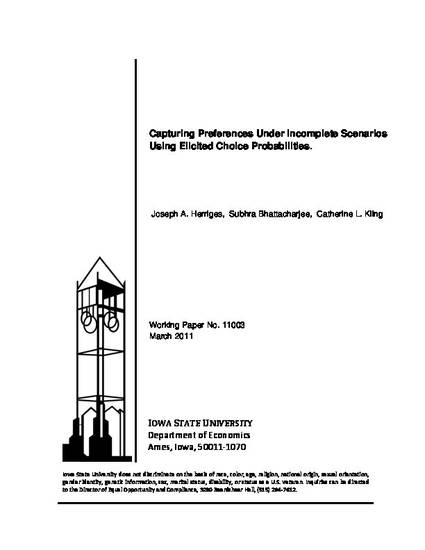
Article
Capturing preferences under incomplete scenarios using elicited choice probabilities
Economics Working Papers (2002–2016)
Document Type
Working Paper
Publication Date
3-23-2011
Working Paper Number
WP #11003, March 2011
Abstract
Manski (1999) proposed an approach for dealing with a particular form respondent uncertainty in discrete choice settings, particularly relevant in survey based research when the uncertainty stems from the incomplete description of the choice scenarios. Specifically, he suggests eliciting choice probabilities from respondents rather than their single choice of an alternative. A recent paper in IER by Blass et al. (2010) further develops the approach and presents the first empirical application. This paper extends the literature in a number of directions, examining the linkage between elicited choice probabilities and the more common discrete choice elicitation format. We also provide the first convergent validity test of the elicited choice probability format vis-à-vis the standard discrete choice format in a split sample experiment. Finally, we discuss the differences between welfare measures that can be derived from elicited choice probabilities versus those that can obtained from discrete choice responses.
Disciplines
File Format
application/pdf
Length
32 pages
Citation Information
Joseph A. Herriges, Subhra Bhattacharjee and Catherine L. Kling. "Capturing preferences under incomplete scenarios using elicited choice probabilities" (2011) Available at: http://works.bepress.com/catherine_kling/62/
